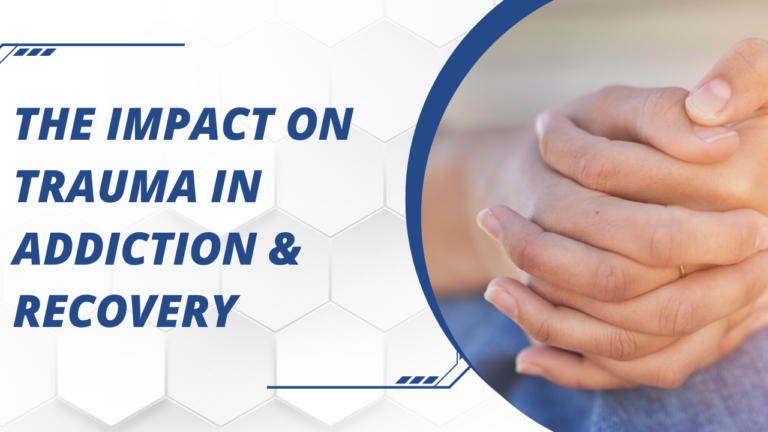
The Impact of Trauma on Addiction and Recovery: Understanding the Connection
Trauma and addiction are two complex issues that are often intertwined. Trauma can have a significant impact on a person’s mental and emotional well-being, leading to a range of negative outcomes, including addiction. For those struggling with addiction, trauma can be a major obstacle to recovery. Understanding the relationship between trauma and addiction is crucial for effective treatment and support.
Trauma can take many forms, including physical, emotional, and sexual abuse, neglect, or exposure to violence. These experiences can have a profound impact on a person’s life, leading to feelings of shame, guilt, and worthlessness. Many people turn to drugs or alcohol as a way to cope with these feelings and numb the pain. Unfortunately, this often leads to addiction, which can further exacerbate the negative effects of trauma.
Recovery from addiction is a challenging process that requires a holistic approach. Addressing the underlying trauma that may have contributed to addiction is an essential part of this process. By understanding the impact of trauma on addiction and recovery, individuals can receive the support and treatment they need to heal and move forward.
Understanding Trauma
Trauma can be defined as any experience that overwhelms an individual’s ability to cope. Traumatic events can be physical, emotional, or psychological in nature, and can occur at any point in a person’s life. Trauma can have a profound impact on an individual’s mental health, and is often linked to the development of addiction.
Types of Trauma
There are many different types of trauma that an individual can experience throughout their lifetime. Some common examples include:
- Physical abuse
- Sexual abuse
- Emotional abuse
- Neglect
- Natural disasters
- Accidents
- Combat
Each of these types of trauma can have a unique impact on an individual’s mental health and well-being. For example, sexual abuse can lead to feelings of shame and guilt, while neglect can lead to feelings of abandonment and low self-worth.
Trauma and the Brain
Trauma can have a profound impact on the brain, particularly the amygdala and hippocampus. These areas of the brain are responsible for processing emotions and memories, and can become overactive in response to traumatic events. This can lead to symptoms such as hypervigilance, flashbacks, and nightmares.
In addition, trauma can also impact the brain’s reward system, which is responsible for regulating feelings of pleasure and motivation. Traumatic events can cause changes in the brain’s reward system, leading to an increased risk of addiction.
Overall, it is important for individuals who have experienced trauma to seek professional help in order to address the impact it has had on their mental health and well-being. By understanding the types of trauma and how it impacts the brain, individuals can take steps towards recovery and healing.
Trauma and Addiction
Trauma is a deeply distressing or disturbing experience that can have a significant impact on an individual’s mental and emotional well-being. Trauma can be caused by a variety of experiences, including physical, emotional, or sexual abuse, neglect, or exposure to violence or natural disasters. Trauma can also play a significant role in the development of addiction and can make recovery more challenging.
Psychological Mechanisms
Trauma can lead to a range of psychological mechanisms that can contribute to addiction. For example, trauma can lead to feelings of shame, guilt, and low self-esteem, which can make individuals more vulnerable to substance abuse. Trauma can also cause individuals to experience anxiety, depression, and other mental health issues, which can lead to self-medication through drug or alcohol use.
It is essential for individuals undergoing at-home alcohol detox to seek professional help if they experience severe anxiety or depression. Mental health professionals can provide support and prescribe medication to alleviate these symptoms.
Substance Abuse as Coping
Substance abuse can also be a way for individuals to cope with the emotional pain and distress caused by trauma. Drugs and alcohol can provide temporary relief from the emotional pain associated with trauma, which can lead to a cycle of addiction. In some cases, individuals may use drugs or alcohol to numb themselves from the emotional pain associated with trauma, which can make it more difficult to address the underlying issues in therapy.
Overall, trauma can have a significant impact on addiction and recovery. It is important for individuals who have experienced trauma to seek professional help to address the underlying issues that may be contributing to their addiction. With the right support and treatment, individuals can overcome addiction and find a path to recovery.
Recovery Processes
Therapeutic Approaches
There are various therapeutic approaches that have been found to be effective in treating addiction and trauma. One such approach is cognitive-behavioral therapy (CBT), which helps individuals identify and change negative thought patterns and behaviors that contribute to addiction. CBT also helps individuals develop coping skills and strategies to manage triggers and cravings.
Another effective approach is eye movement desensitization and reprocessing (EMDR), which is a form of therapy that helps individuals process traumatic memories and reduce their impact on current functioning. EMDR involves focusing on a traumatic memory while engaging in a specific type of eye movement, which has been found to reduce the intensity of the memory.
Building Resilience
Building resilience is an important component of the recovery process for individuals who have experienced trauma. This involves developing the ability to adapt to and cope with stressors and challenges in a healthy way. Some ways to build resilience include:
- Practicing self-care, such as getting enough sleep, eating well, and engaging in physical activity
- Developing a support system of friends, family, and professionals
- Engaging in activities that promote relaxation and stress reduction, such as meditation or yoga
- Identifying and challenging negative thought patterns and beliefs
- Developing a sense of purpose and meaning in life
By incorporating therapeutic approaches and building resilience, individuals can increase their chances of successful recovery from addiction and trauma.
Challenges in Recovery
Recovering from addiction is a challenging journey, particularly for those who have experienced trauma. Trauma can impact a person’s ability to cope with stress and regulate their emotions, which can increase their risk of relapse. In this section, we will explore some of the challenges that individuals with a history of trauma may face during their recovery journey.
Relapse Triggers
One of the biggest challenges for individuals in recovery is avoiding relapse triggers. Trauma can create a heightened sensitivity to certain triggers, such as stress, anxiety, or certain environments. These triggers can lead to intense cravings and make it difficult to resist urges to use drugs or alcohol.
To avoid relapse, individuals in recovery must identify their triggers and develop coping strategies to manage them. This may involve avoiding certain people or places, engaging in stress-reducing activities, or seeking support from a therapist or support group.
Social and Environmental Factors
Social and environmental factors can also pose challenges for individuals in recovery. Trauma can impact a person’s relationships and social support network, making it difficult to find and maintain healthy relationships. Additionally, environmental factors such as poverty, housing instability, and lack of access to healthcare can make it difficult to access the resources needed to support recovery.
To overcome these challenges, individuals in recovery may need to seek out supportive social networks, such as peer support groups or family therapy. They may also need to access resources such as affordable housing, job training, or healthcare services to support their recovery journey.
Overall, recovery from addiction is a challenging process, particularly for those who have experienced trauma. However, with the right support and coping strategies, individuals can overcome these challenges and build a fulfilling life in recovery.
At Waterside Recovery Centers we pride ourselves on providing the top addiction treatment in Massachusetts. With a range of evidence-based, client-focused and individualized treatment offerings, we are able to provide the ideal support for those seeking recovery from substance addiction. Please feel free to reach out to our help line at anytime.
(866) 671-8620



